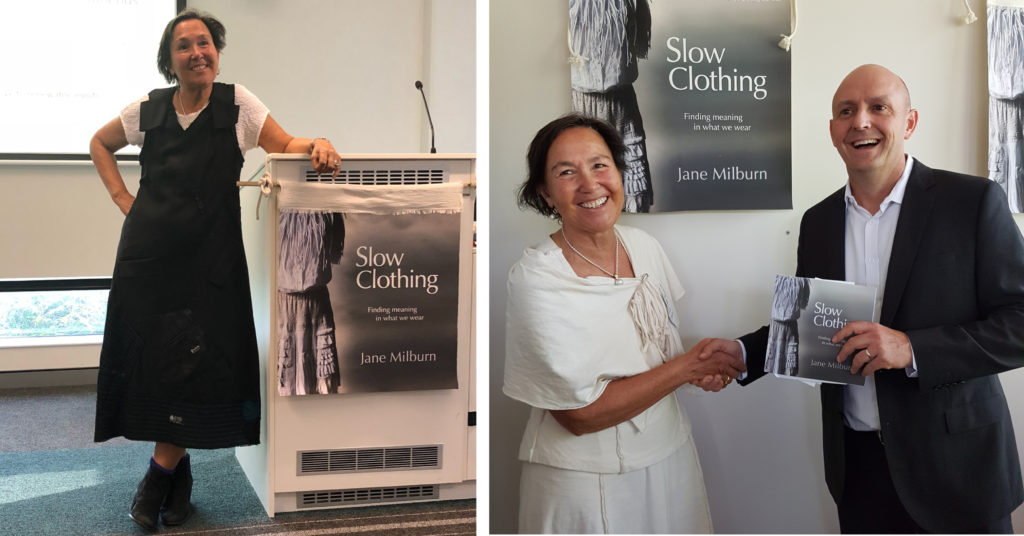We can leave home without eating occasionally but never without dressing!
Dressing is integral to life but what we wear is so often discussed in a fashion context of colour, shape and style. The broader view considers health and wellbeing aspects that respond to fashion waste, pollution, and exploitation issues.
Australian social entrepreneur Jane Milburn, founder of Textile Beat, has spent five years studying the need to transform a culture of fashion excess to a more thoughtful and engaged approach.
Jane’s new book Slow Clothing: finding meaning in what we wear was launched in Canberra at the Australian Rural Leadership Foundation by economist Richard Dennis who, in his own book (Curing Affluenza) proposes buying less stuff as a way to save the world.
Slow Clothing was also the subject of a Fenner Foundation talk at ANU’s Acton campus where the focus was on ways of dressing with planetary health and wellbeing in mind.
Slow Clothing presents a compelling case for wearers to change the way we dress to live lightly on Earth as a response to waste and pollution that sees 6000kg of textiles going to landfill every 10 minutes in Australia.
‘With Slow Clothing, we reflect our own style and spirit, independent of fashion cycles. We buy carefully, gain skills, and care for what we wear as an embodiment of ourselves. Through this action we, the wearers, become original, authentic and resourceful,’ Jane said.
‘Australians consume double the global average and are the world’s second-largest consumers after north Americans, based on annual apparel fibre estimates.
‘And two-thirds of new clothing is now made from synthetic (ie plastic) fibres, derived from petroleum, which research has shown to be shedding microplastic particles into the ecosystem.’
Rethinking clothing culture is also essential to turning the tide on the exploitation of garment workers caught within global supply-chain empires that foster fast-consumption attitudes.
‘We eat and dress every day to survive and thrive, and in the same way we have become conscious of food and its impact on health and wellbeing, we are becoming conscious of the substance and origins of what we wear,’ Jane said.
‘Slow Clothing is based on individuals gaining autonomy and agency through 10 conscious beliefs and actions—think, natural, quality, local, few, care, make, revive, adapt and salvage. It is part of the revaluation of material things through minimalism, mending and tinkering.
You can purchase a copy of Slow Clothing in Australia here, or overseas via Book Depository here
